Social Protection (M.Sc.)
MSc Social Protection Insights: April
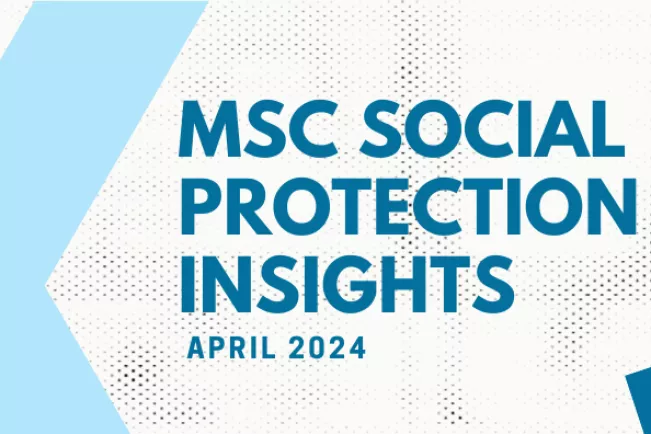
April 2024: Social Protection Insights
📢 Research Assistant Darleen Kolbe Attended CSW68 in New York City

The 68th session of the UN Women Commission on the Status of Women (CSW68) took place again from March 11 - 22. The annual conference is a gathering of feminist civil society activists and government delegations from across to globe that come together to reach agreed conclusions on a priority and review theme, an potentially an emerging issue.
- Priority theme: Acceleration of reaching gender equality and the empowerment of all women and girls through gender-responsive financing, strengthening institutions and addressing poverty was at the core of the discussions.
- Review theme: Social protection systems, access to public services and sustainable infrastructure for gender equality and the empowerment of women and girls
Our H-BRS research assistant and independent social protection consultant Darleen Kolbe was able to join as a civil society representative for Deutsche Model United Nations e.V.. In this position, she attended briefings for the German (civil society) delegation at the German House, side and parallel events of different international organisations and NGOs, evening receptions and informally networked with fellow feminist activists.
Here are some of her key takeaways:
- Theme: The session's priority and review theme are more topical than ever with regard to the many ongoing and new shocks around the world, ranging from violent conflicts and wars to climate change, inflation and political oppression, which ultimately also represent a crisis for women's rights.
- Topics of friction: As in previous years, these include the agreed language on intersectionality, which primarily refers to different gender identities and sexual orientations, and sexual and reproductive health, i.e. access to contraceptives and abortions. As a result of the need to reach an agreement, the conclusions in these areas are ultimately not progressive enough for most countries.
- Impact: The conference made me feel so significant and so insignificant at the same time. What lessons do you take home with you? What are the benefits of all the events and discussions? For me, it is clearly mainly the reflection on my own privileges, the ways in which my work is and can be important, and the need to continue being loud for women's rights.
- Privilege: While Germany is on site with numerous representatives of the government and civil society, probably numbering in the hundreds, some states and minorities are hardly represented or not represented at all. While my US visa was issued overnight, I heard of way too many people whose visa was not processed (in time). While I was financially supported by my employer and could afford the remaining costs, one of the most expensive cities in the world is simply not affordable for many people. While I have a free choice of education and career, and the support of my family to be able to attend such events, there are too many people - especially women - who are unable to leave home or get into decision-making positions precisely because of the much-mentioned (unpaid) care work, social norms and lack of access to important resources.
- Closed discussions: In addition, many relevant discussions happen behind closed doors and civil society only gets a limited say. Many conference rooms are not accessible in person as a civil society delegates, but are live-streamed via UN TV. NGO Briefings convened at UN premises and national delegation meetings try to bridge the gap and make voices heard.
🌟 Tune in at the Brown Bag Lunch "Report from the Commission on the Status of Women Conference (CSW68)" on April 15 from 12:45 - 13:30 for more insights!
📢 Students Start their Online Semester after Semester Break
Our programme is specifically designed so students have access to international colleagues and experts; the first semester is in person in Sankt Augustin, so students can connect with one another, and the second semester is online. Our second semester being online allows us to invite guest lecturers to share their research and expertise from around the world, and allows our students to study remotely from the place of their choosing depending for the remainder of the program. Some remain in Germany, some return to their home countries, and some move somewhere new for work; regardless they are able to continue their full-time studies! We are always thoughtful of the diverse time zones when planning our second semester sessions as well.
After a well needed break, our 2023 batch is back with Module 5: Social Protection Financing.
Module 5: Social Protection Financing
The online summer semester begins with Module 5, further exploring economics and financing techniques used in social protection.
M5.1 Public Finance // Prof. Dr. Simona Helmsmüller
- This course covers the fundamentals of public finance theory, such as cost-benefit analysis and tax incidence. Another core element covered in public finance in social protection is sustainability.
M5.2 Resource Mobilization // Prof. Dr. Krzysztof Hagemejer
- Module 5.2 explores social budgeting, and students utilize government finance statistics to assess past and present social protection government spending. The matrix of policy space, fiscal space, and affordability alongside opportunity costs are considered in analysis.
M5.3 Financing Techniques // Prof. Dr. Masauso Chirwa PhD
- Students will examine the financing methods of specific social protection systems, such as healthcare benefits and social security pensions, analyzing both short and long-term challenges faced in modern public finance. Additionally, external funding will be explored.
After completion of the course, students will be familiar with the varying methods of public financing which governments implement for social spending, specifically in social protection. They will have experience with understanding varying challenges that come with diverse and changing demographic, economic and country contexts.Module 5: Social Protection Financing
Our Batch 2023 is just about to start into their second online semester with courses that aim to equip them with the necessary knowledge to find and compare financing options for social protection programmes and systems.
Get to Know Our Students, Lecturers & Alumni
Student of the Month
Name: Aiana Tazabekova
Batch: 2022
Country of Origin: Kyrgyz Republic
Social Protection Experience: Sponsorship Program Coordinator at a charity NGO Babushka Adoption Foundation, an organization that focuses on financial assistance for vulnerable older persons with little to no pensions, advocacy for older persons' rights, and social and psychological services to beneficiaries.
Internship: Ministry of Labour, Social Security, and Migration of Kyrgyz Republic - The World Bank Project Implementation Unit
Research Interests: Old-age social protection, Pension system, Digital technologies in social protection
„The program has been a solid preparation for my future. What stood out was the hands-on experience, letting me apply theoretical knowledge I learned in real life scenarios. Beyond that, the program has helped me build a valuable network, connecting me with experts and fellow students. I'd definitely recommend this program for its practical approach, supportive atmosphere, and the chance to develop a strong professional (and personal) network.”
Aiana Tazabekova - 2022/23 Batch
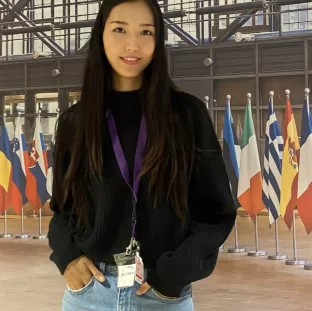
Alumni Spotlight
Name: Monja Hippers
Batch: 2017
Country of Origin: Germany
Current Organisation: German Social Accident Insurance (DGUV)
Master's Thesis Topic: Employment Injury Insurance (EII) for Textile- and Leather Industries in Bangladesh – Obstacles and Chances to the Implementation from an Employers Perspective
Bachelor's Degree: Social Security Management – Accident Insurance (BA) | Hochschule Bonn-Rhein-Sieg (H-BRS)
„Looking back at my decision to pursue the master's program, I now realize it was the best decision I could have taken. The programme helped me transition from a tactical role to a more strategic one by providing me with an understanding of general principles and various social protection schemes. This gave me the ability to come up with new ideas and processes, as well as designs, in the field of occupational accidents insurance in Germany. I can highly recommend the program to anyone interested in social protection, and I would gladly make the same decision again.”
Monja Hippers - 2017/18 Batch
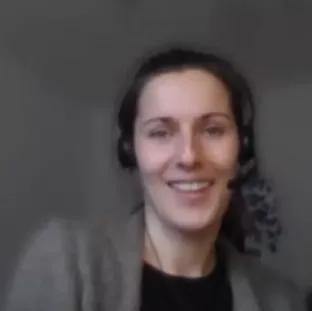
Meet our Lecturers
Name: Krzysztof Hagemejer
Position: Honorary Professor at Bonn-Rhein-Sieg University of Applied Sciences
Teaching in the programme since: inception in 2015
Course(s) in 2023/24: M2.1 Economics of Social Protection, M5.2 Ressource Mobilization, M6.2 Groups in Focus - Working Population
Expertise: Economics and financing of social policies, acquired through many years of working globally with the International Labour Organization
„The programme aims at filling the deficit of social protection research and policy analysis expertise which exists beyond the Global South. One can now find graduates from the programme providing their expertise to government agencies, international organisations, non-governmental organisations and academia all around the world. I very much enjoy discussing challenges to social protection policies with open-minded and very committed students who come to Sankt Augustin to study social protection from sometimes very distant countries with diverse cultures, history and policy environments.”
Krzysztof Hagemejer - Honorary Professor
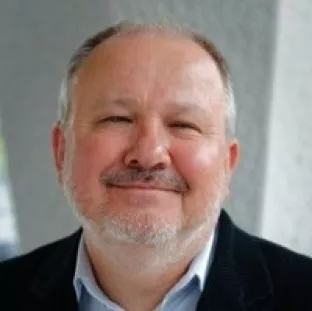
Resources and Publications
- A very topical new podcast episode by WIEGO - Women in Informal Employment: Globalizing and Organizing on #35 Innovations to Financing Social Protection in a Changing World of Work von Informal Economy Podcast: Social Protection
- Honorary professor Krzysztof Hagemejer published a chapter on Social policy research on the ageing workforce from the perspective of employees and employers with colleagues Frank Hoffer and Michal Polakowski as part of the book A Research Agenda for Ageing and Social Policy.
-
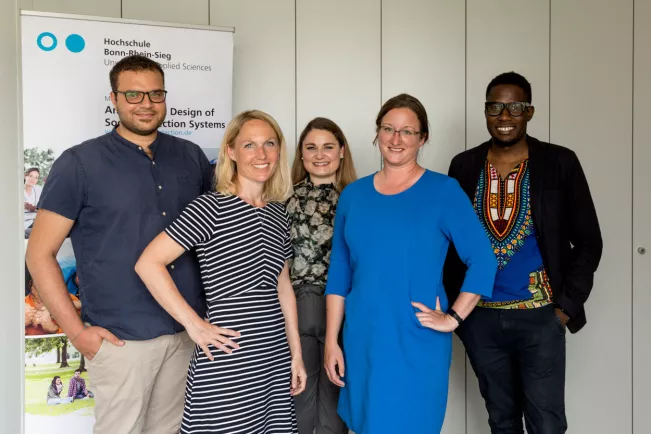
Contact Us!
We are always interested in creating partnerships with those of you working in the field! We would love to hear from you if are interested in
- being a #ThesisSupervisor,
- providing #Internship opportunities to our students,
- publishing a paper in our #WorkingPaper series, or
- visiting our university as a #GuestSpeaker!
Your feedback and suggestions to improve the newsletter are also very welcome.